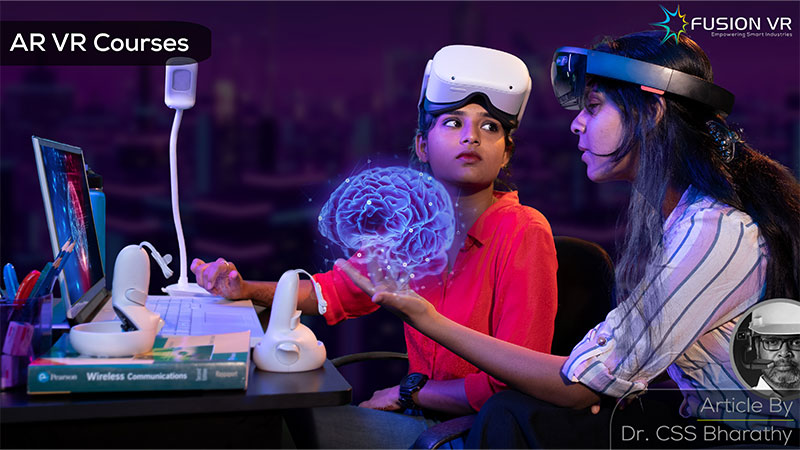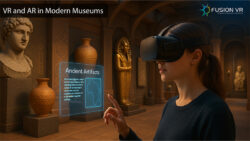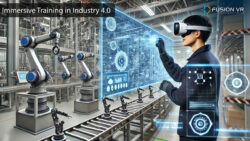This is a question most young people ask me all the time in seminars or in my interactions at various colleges and universities. As someone who has seen the growth of AR and VR over the past decade, I’m always willing to share my thoughts as an industry expert. As the founder of Fusion VR, I am intimately aware of what skills are required to develop top-notch solutions. I’m really happy to share what I have shared with many before
As you know very well, the young generation of today belongs to the digital age. VR and AR have definitely captured their attention and imagination and they are hungry to know more. Having grown up with computers, gaming consoles, and video games, the digital ecosystem is something they have been familiar with and comfortable with. It is quite natural that this generation wants to make a career out of it and is looking forward to learning more about it in the formal education system. It is essential that acquiring the necessary certifications for augmented reality and virtual reality courses will help them obtain virtual reality developer positions in leading companies engaged in AR VR solutions development or begin development on their own.
AR VR no longer remains in the domain of gaming. It has found extensive applications in many industries and sectors across the world. The immense benefits these technologies bring about have been recognized by industry leaders and educational service providers. Usually, companies recognize the talent shortages and typically step up with short-term courses or OJT-type assignments to address their project needs.
It is important to recognize that the most popular game engines used in development are Unity and Unreal Engine. Unity requires the use of C# language which is also called C Sharp. This is the language necessary to communicate in Unity to develop VR applications. Unity also has AR Foundation which a purpose-built framework for developing AR applications. C# courses are offered widely and could be part of the university curriculum.
AR VR Education and Certification Programs
Unreal Engine in contrast uses C++ as the foundation for developing applications in it. It is said that both Unity and Unreal Engine use C++ in their source code, while Unreal engine is entirely done with C++. Experts opine that C++ is widely used for developing applications that are in critical service and also where performance and resource utilization is a priority. It is also important to learn interaction design as it is quite essential to create meaningful user interaction and user experiences in the solutions that are developed for customers.
There are various course providers who offer to teach both programming languages as part of AR and VR courses. These are also a part of the academic curriculum at universities. Various online courses are also available, both free and at a reasonable cost. An important thing to consider is obtaining a professional certificate while pursuing these courses. AR VR certification would definitely prove value added in the job market. Youngsters need to remember that it is also necessary to approach learning any new programming language in a slow and methodical approach to avoid losing interest and leading to burnout.
While the above-mentioned programming skills are essential, they may not be the only thing you need to become a good developer of AR VR solutions. Understanding the domain/industry of your customer, and their pain points, developing use cases, and customizing the solution such that eliminates their challenges is equally important. This requires soft skills such as listening, asking probing open-ended questions, collaboration, etc. which take a bit of time and effort to acquire.
Companies such as Fusion VR are at the forefront of developing applications and have engaged with leading companies such as ARK Solutions to deliver the Industry Academic Alliance program in India. This is a suite of courses designed by these two organizations that cater to current industry needs. They have collaborated to deliver the best in class AR VR education and are driven by the goal of making VR AR knowledge and skills accessible to all. These AR VR courses are delivered through tertiary institutions to their students enabling them to become industry ready by the time they finish their studies and jump into the world of developing VR apps.
Students are welcome to explore this program and I sincerely encourage them to check out other course providers as well for AR VR training course. Getting more and more students skilled and ready is very beneficial for the industry. Both these technologies are immensely important for helping companies enter the Fourth Industrial Revolution of Industry 4.0. This is also fueling the demand for AR VR engineers which is at an astonishing 1400% and is growing at an incredible rate of 280%. The future is very bright for students and I believe we can ride the wave of opportunity for growth and prosperity.





